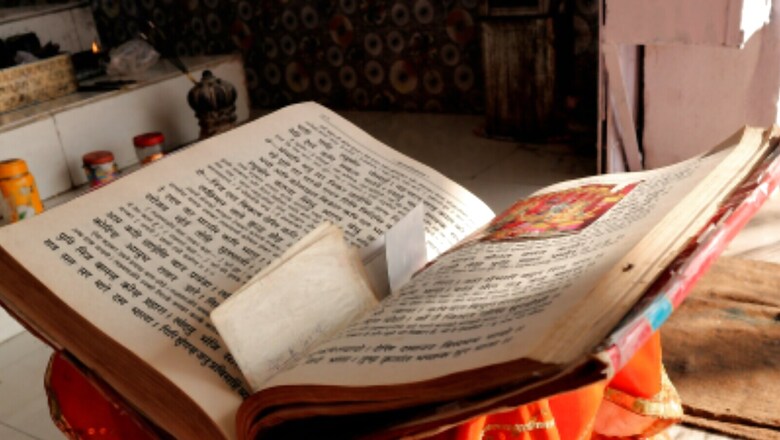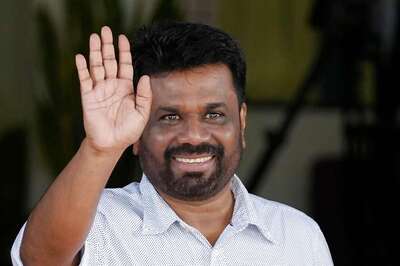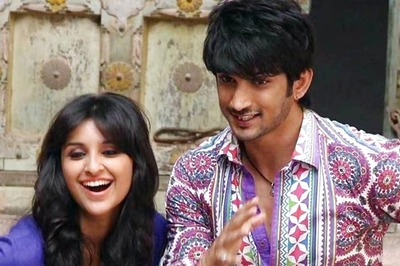
views
Last week, I was on a TV news debate on the ongoing Hijab row in Karnataka. The other panellists were scientist and author Dr Anand Ranganathan and diplomat-turned-politician and author Pavan K. Varma. Given the nature of the issue under discussion, naturally its scope widened beyond the Hijab controversy, and veered towards the predictable direction of treatment of ‘minorities’ in Bharat.
During the course of the debate, Shri Varma, who is currently the National Vice-President of the All India Trinamool Congress, made the point that he was a proud Hindu who disapproved of Hindus being used as a vote bank by the BJP and their sentiments being used as political fodder. Dr Shashi Tharoor had made a similar point in his public debate with me last September in Chennai on the occasion of the launch of his book The Battle of Belonging: On Nationalism, Patriotism, And What It Means to be Indian. With due respect to the standing and erudition of both gentlemen, I believe that their position suffers from gross reductionism, lacks nuance and is utterly insensitive to the long-standing legitimate concerns, and not mere sentiments, of Hindus which predate both the RSS and the BJP. This is because never have these gentlemen or their like-minded ‘secular’ colleagues ever recognised the validity of Hindu concerns while separating it from their criticism of the BJP.
For instance, it is possible for someone to politically disagree with the BJP and still take the position that Hindus have been treated as second-class citizens right from the inception of the current republic, which is evident from the shoddy treatment of their rights and beliefs by the Indian State. To the best of my knowledge, no such distinction has ever been made by the “secular” politicians of this country who are only too keen to accept the legitimacy of minority concerns on face value. If the adoption of minority interests by “secular” parties does not undermine their validity, why shouldn’t the same logic be extended to Hindu/Dharmic interests?
In any case, in a democracy, a community secures its interest by converting it into an attractive political incentive or a formidable disincentive, which the Hindu community is equally entitled to without being weighed down by the tyranny of lofty expectations that do not apply to others. Apart from the clear double standards in the “secular” position, what makes matters worse is the fact that demonstration of “secular” credentials in India is not limited to assuring the minorities of the safety of their rights and equal treatment, but has required and translated to giving primacy and preference to minority interests. Under these circumstances, Hindus cannot be blamed for gravitating towards any political alternative which displays even the slightest of Hindu proclivity, even if symbolic.
I must clarify this is not a personal attack against either Dr Tharoor or Shri Varma since it would be incorrect, and hence unfair, to assume that this problem is limited to two individuals. As stated earlier, the root of the problem may be traced to the formative years of the current Indian Republic when trivialisation of legitimate Hindu concerns at the altar of ephemeral communal peace and elusive harmony was the norm under the Nehruvian dispensation. This attitude was equally prevalent in the policy, academic and media establishments nurtured by it. The dismissive attitude of this Nehruvian Marxist ecosystem and its false Eurocentric characterisation of Hindu concerns as “majoritarianism” or “Hindu Nationalism” are attributable to the existence of a colonialised mindset (“coloniality”).
This mindset, which is a product of cultural colonisation by the West, actively refuses to acknowledge the transgenerational trauma sustained by the Bharatiya civilisation owing to two waves of ethno-religious settler colonisation by iconoclastic and monotheistic systems. Critically, this mindset has chosen to turn a blind eye to the continued expansionist tendencies of the very same systems which are now perpetuated under optically correct labels, such as “minority rights” and “secularism”. These labels draw attention away from the global presence and transnational affiliations of these “minority” systems, which makes it all the more imperative to call out this convenient, deliberate and cynical reduction of Hindu civilisational interests as “BJP’s vote bank politics” or “RSS agenda”.
First, such reductionism simultaneously delegitimises and dehumanises Hindus as a community and their existential challenges. This is evident from the constant false comparison with European nationalism of the 1930s which is employed to guilt-trip Hindus for something they are not guilty of in the first place. After all, the historical backdrop of Hindu aspirations is diametrically different from the expansionist vision of European nationalism. Also, the unfairness of the comparison must be evident to any reasonable person with a sense of history when confronted with the fact that despite a bloody vivisection of the sacred Bharatiya civilisational space on religious lines, the independent Bharatiya State did not embark on a society or State-sponsored persecution of any religious minority. Instead, a Hindu-majority independent Bharat embraced a Constitution which guarantees fundamental rights to all citizens regardless of their faith, and grants minorities of all hues the same unspoken rights vested in the majority.
Second, it is not the Constitution but the forward-looking nature of the Hindu community that has preserved the fabric of this country, which cannot be underscored enough. The Constitution is a product of this accommodative nature. This deserves particular credit in light of the monumental failure on the part of the Nehruvian dispensation to undo the continuing injustices of colonisation such as the occupation of thousands of Hindu religious sites and rampant evangelical abuse of religious freedoms. In short, a ‘Truth and Reconciliation Commission’ ought to have been established as a matter of priority at least in the aftermath of the Partition to prevent both distortion of history and its weaponisation to the detriment of the victims, namely Hindus. Critically, this failure of the Nehruvian dispensation to set the record straight on history is directly responsible for the continued existence of friction between communities. To blame it on “Hindu majoritarianism” is a textbook example of gaslighting the victim.
ALSO READ | Leftist History Negates India’s Civilisational Greatness, Underplays Bloody Islamic Conquests
Third, given Bharat’s division into states and its federal structure, the narrative of majoritarianism is factually and legally incorrect since the majority-minority dynamic changes from region to region, state to state and district to district, which is reflected at the hustings. It is a fact that at least in seven states, Hindus are in the minority whose rights and interests somehow never find expression in the utterances of enlightened individuals such as Dr Tharoor or Shri Varma whose hearts constantly bleed for select “national minorities”. What is worse is that even Constitutional organs such as the Supreme Court have failed to recognise the minority status of Hindus in these states.
Finally, the all-pervasive institutional and systemic apathy to Hindu concerns is evident from the fact that no political party has shown the initiative to recognise the minority status of Hindus in these states. While there exist political parties dedicated to specific religious minority groups, and ‘secular’ parties whose courtship of religious minorities is never-ending, there does not exist a single party which unabashedly champions the rights of Hindus and ventilates their concerns without compromise. Clearly, Hindus as a community are political orphans while sub-groups within the Hindu community, namely the colonial categories of “castes” and “tribes”, are cannibalised and hived off to satisfy the demands of electoral arithmetic. The end result is the weakening of the Hindu community from within. This only proves my point that in light of the political destitution of Hindus, it is utterly insensitive and inaccurate on the part of the “secular” political class to equate and thus reduce all Hindu concerns to “BJP/RSS agenda”.
Perhaps, this works to the advantage of all concerned except Hindus whose civilisational and political destitution has improved only nominally. After all, to a destitute, even a solitary ray of hope feels like sunshine, which explains the perception of the BJP as a Hindu party. Perhaps, the goal of “secular” politicians is to deprive Hindus of even this smidgen of respite and reinstate their destitution.
J. Sai Deepak is an engineer-turned-lawyer practising as an arguing counsel before the Supreme Court of India and the High Court of Delhi. He is also the author of the bestselling book India that is Bharat: Coloniality, Civilisation, Constitution. The views expressed in this article are those of the author and do not represent the stand of this publication.
Read all the Latest Opinions here




















Comments
0 comment